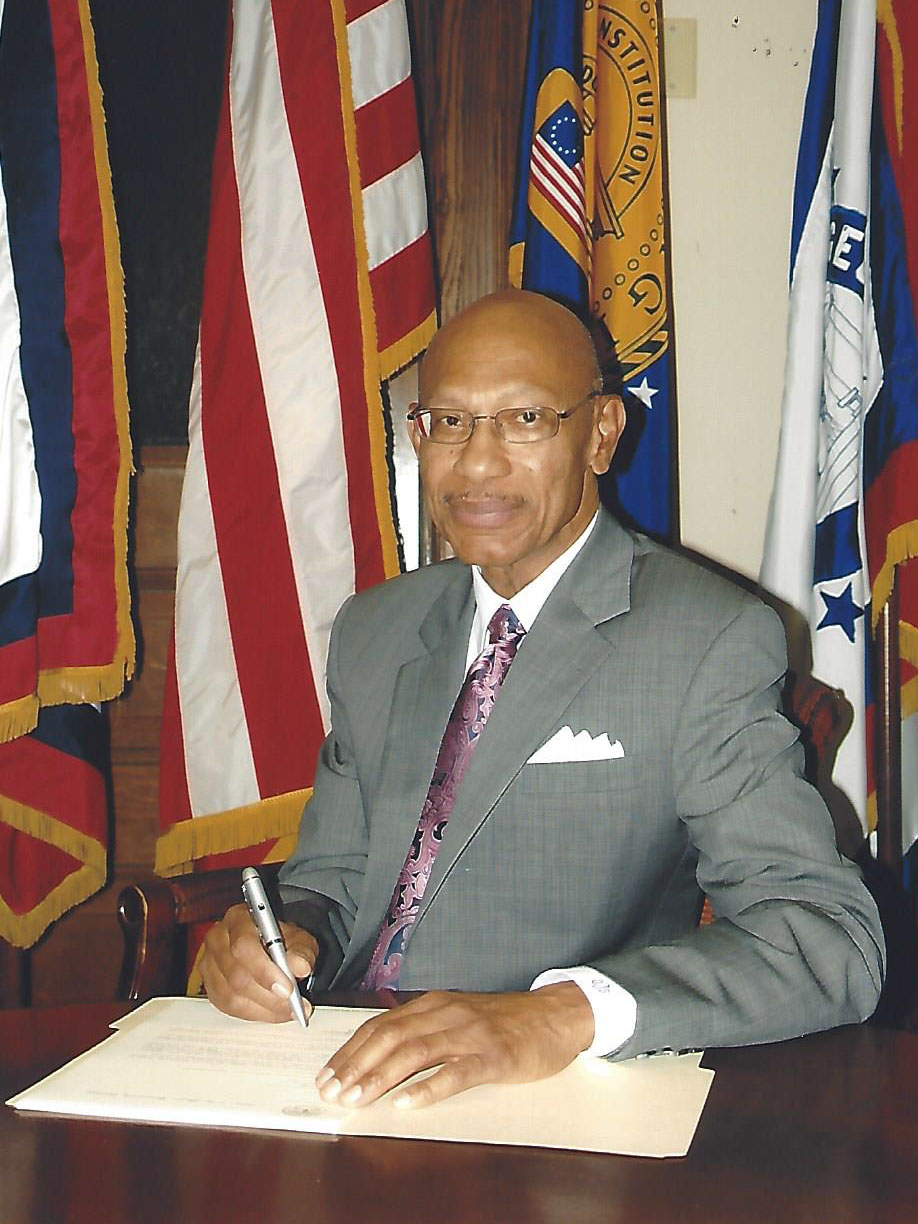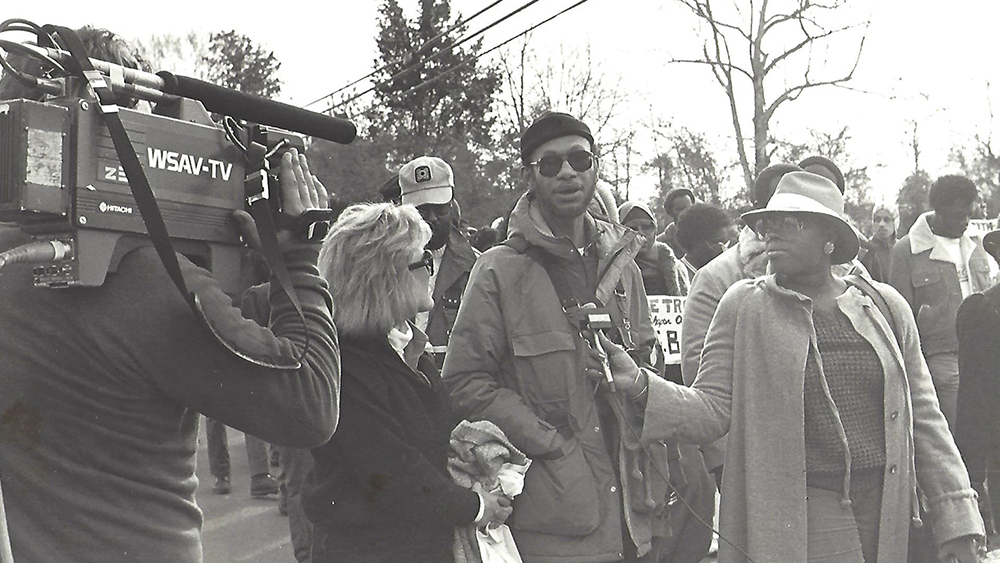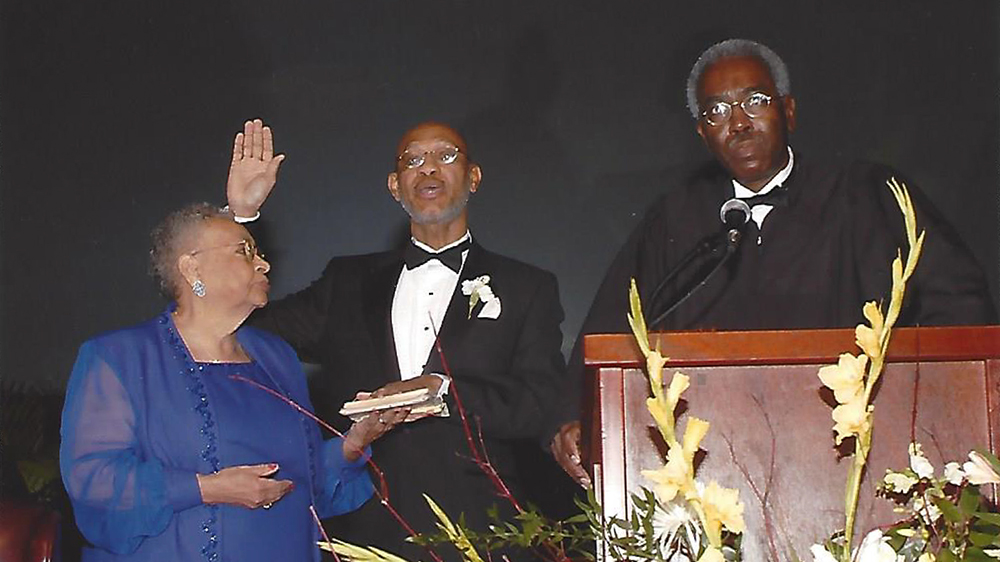
Otis Johnson, PhD’80, is one of 15 alumni to receive a 2020 Florence G. Heller Alumni Award. Over the last half century in Georgia, he has worked as a community organizer and a professor at a public university, as well as served on the school board, city council, and as mayor of Savannah. (His public service was previously highlighted in Heller Magazine.) Now, he’s leading the mayor's racial equity task force, REAL (Racial Equity and Leadership) Savannah, to examine racial disparities. He spoke to Florence G. Heller Associate Professor of the Practice Susan Curnan, director of the Center for Youth and Communities, about his commitment to social change and combating injustice from the civil rights movement to today.
Susan Curnan: Why have you dedicated your career to social change and civil rights, and how have you drawn on your Heller education?
Otis Johnson: I have been a warrior in the civil rights movement and in the so-called war on poverty. I've been involved with issues of poverty and injustice my entire career. What Brandeis gave me was a foundation to look at implications and to approach social change from the system level. I was always a policy person. I wasn't ever a direct service person because I believed that you had to make changes at the policy level. You can provide services until the cows come home, but it won’t change the structure of things. It is the system that perpetuates the inequality and unless you can challenge that, you can't get lasting change.
I am so happy because I really came to Heller at the right time. We had pioneers of the study of community and the analysis of social systems and inequality, such as David Gil, Roland Warren, Wyatt Jones and all of those folks—it was just great.
I moved into politics because I came to learn about the inside-outside strategy. You have to have people making noise and creating discomfort on the outside, but you also have to have people on inside who are sitting at the table, who can make decisions. I was first elected to a city council position in 1983 and was reelected to that position in 1986. Then I went on to become the founding director of the Annie E. Casey Youth Futures program that was here in Savannah trying to organize across boundaries to do something to improve the lives of children and families. Then after 10 years, I became dean of the College of Liberal Arts and Social Sciences at Savannah State and ran for the school board, dealing with the perpetual issues of equity and fairness in the public-school system. Then I had the opportunity to become the Mayor. I served the people and won reelection, before terming out.
Then I went back to academia one more time to become the Scholar in Residence at Savannah State University. Now I'm chairing the Mayor's Racial Equity Task Force, which is going to take advantage of this opportunity that we have in this country now to really look deeply at the disparities that we still have in the city of Savannah, and to organize a Blue Ribbon Committee to deal with that and to use a racial equity lens to do our analysis. So, I hope that this will be maybe the last thing in my career. I use the phrase, “I'm going to wear out rather than rust out.” I'm still on the battlefield and I give a lot of credit for my preparation to Brandeis.

Curnan: You have had a long and storied career and you are not giving up. Where does your motivation come from?
Johnson: When I was in elementary school, it was during the days of segregation, I had great teachers. They instilled in us that we were equal and that we should strive to be the best that we could be and that we had to stand up for what was right.
In 1960, when I graduated from high school, the civil rights movement broke out in Savannah. I went away on active duty for two years and when I returned, I dove headlong into the fight for civil rights. I became one of the first, if not the first, to attend a previously segregated state school, Armstrong State College, then went on to the University of Georgia. That’s why I chose this as my life's work: battling prejudice and discrimination. I've been at it ever since, looking for different angles and different strategies to reduce the racism that I grew up with, and that we still live with today. That's what keeps me motivated.
This is a marathon, not a sprint. You have to look at the warriors from the past and take courage from the victories that they won. You have to be a part of the struggle. Frederick Douglass said that where there's no struggle, there's no progress and that power concedes nothing without a demand. Although we have a long way to go, when I look back, having been born in 1942 and look at what's happening in 2020, we have come miles and miles and miles and we've still got miles to go. Now it's the young people's time now to take the baton and go on to the next lap of this long race.

Curnan: How do you measure social impact when everything takes so long?
Johnson: Well, I use the little proverb about how you eat an elephant: one bite at a time. If you set out to take on an issue, you have to really analyze that issue and define your strategy for tackling that issue. You must set up measurable benchmarks along the way so that you can see whether you're having success in achieving your goal. And it is those little steps that you celebrate — it keeps your morale up because you can see the change coming. It won't be a revolution, it will be a transformation. If you’re clear on what it is you're trying to do — if you understand the contours of that elephant and you get a plan to eat it — then you take those bites and you celebrate and you drink some water and you get back into the fight renewed. That may sound simplistic, but it is my mental image.
Curnan: As you take on REAL (Racial Equity and Leadership) Savannah, the mayor's task force on racial justice, I’m sure the disparities that are being raised up by the pandemic are on your mind. How is it in Savannah right now, and how has it changed the work that you're going to be doing?
Johnson: This pandemic has really snatched the cover off of a lot of real serious problems in Savannah. We've been struggling with intergenerational poverty for decades. We have so many essential workers who must work in place and are more exposed, increasing the exposure of their families. What we're seeing in this country is the disproportionate number of people of color who are being infected by this disease. We are trying to lift that up and make people more aware of the dangers of that, also the fact that these most vulnerable people are keeping this economy going.
We're also looking at the fact that we need to come up with some viable alternatives to how we educate our children. The majority of our school district is African American, and we have problems with performance. Every day that they lose in terms of experiencing academic success sets them back and therefore increases the handicap that they will have to deal with for the rest of their lives. There are a lot of real issues that we're going to have to deal with in Savannah and in Chatham County.
In late November, as the Georgia Senate races headed to a January 5 run-off, Heller posed an additional question to Johnson:
Heller: Georgia has become a pivotal battleground in the latest election. Do you have a message for your fellow Georgians, as well as for Heller community members outside of Georgia?
Johnson: I would say that this extended part of the election is still a battle for the soul of America. The fate of the Senate rests right now with Georgia. And every person who will be 18 and over on January 5 needs to vote. They need to be concerned about the president, who will be Joe Biden in January, and his ability to do what he needs to do with his cabinet to address the critical issues that we face in this country. So my message to the people of Georgia is that this is the most important vote—in addition to voting for president—that the people of Georgia will cast in their lifetime.
The Heller community can help right now by contributing financially. The voter mobilization efforts are well underway in the state and so we don’t necessarily need people to come to Georgia, but to help finance what is going to be an extremely important voter turnout effort. And if the extended Heller family—anyone connected to Heller or Brandeis—knows anybody in Georgia, they need to make a personal call to that person and encourage him or her and their family, not to sit this one out.
